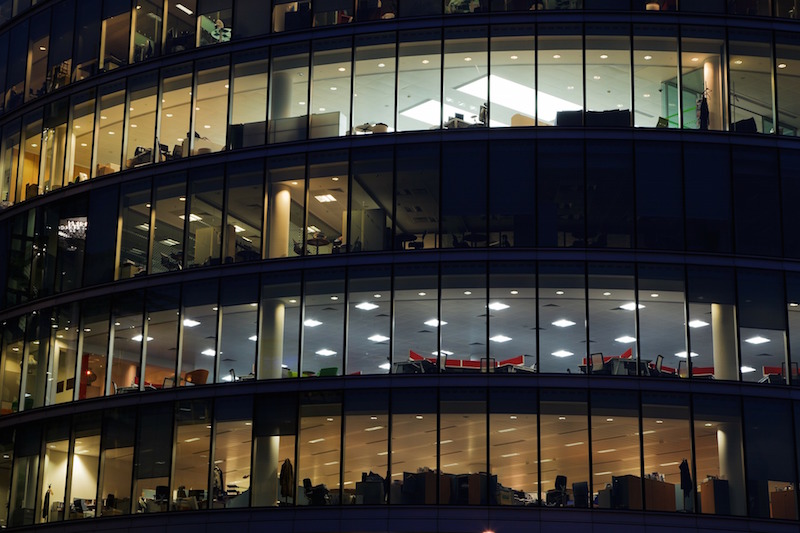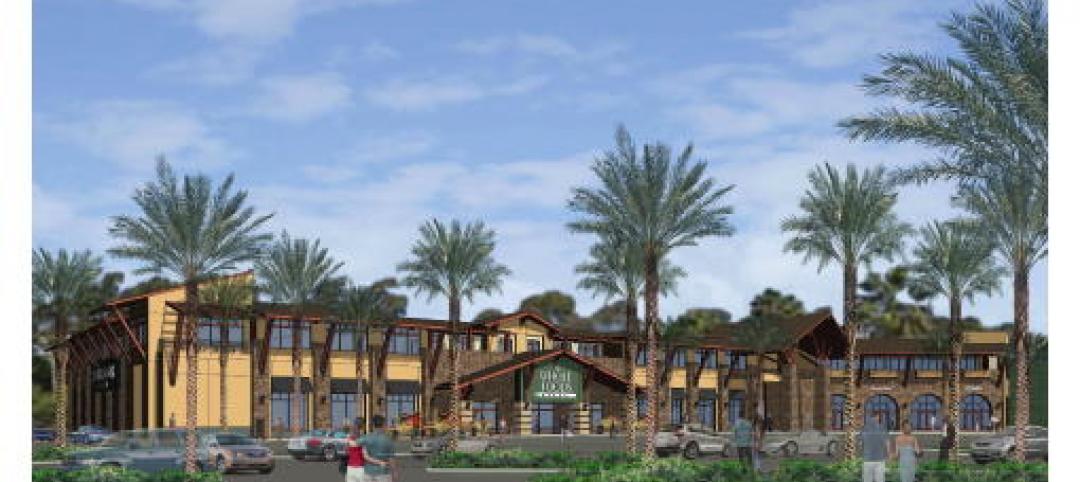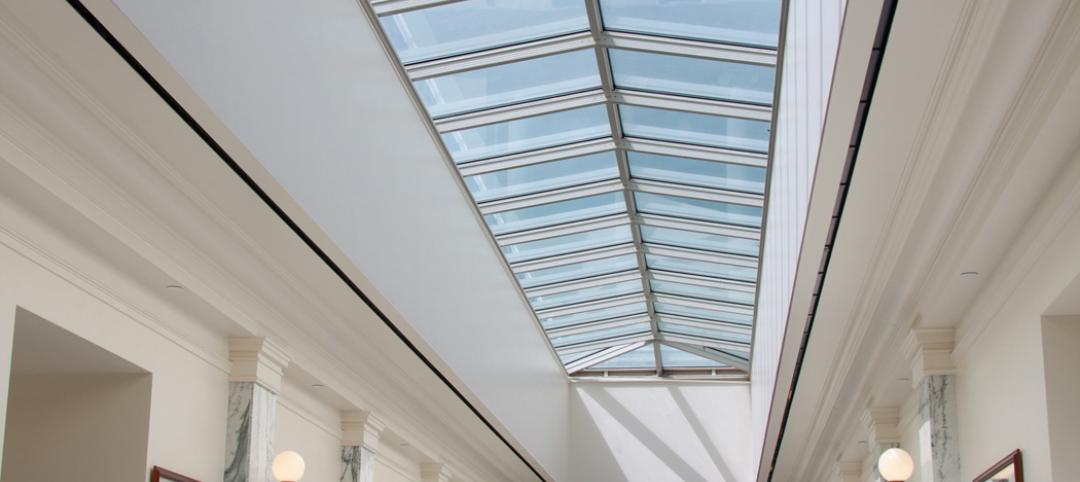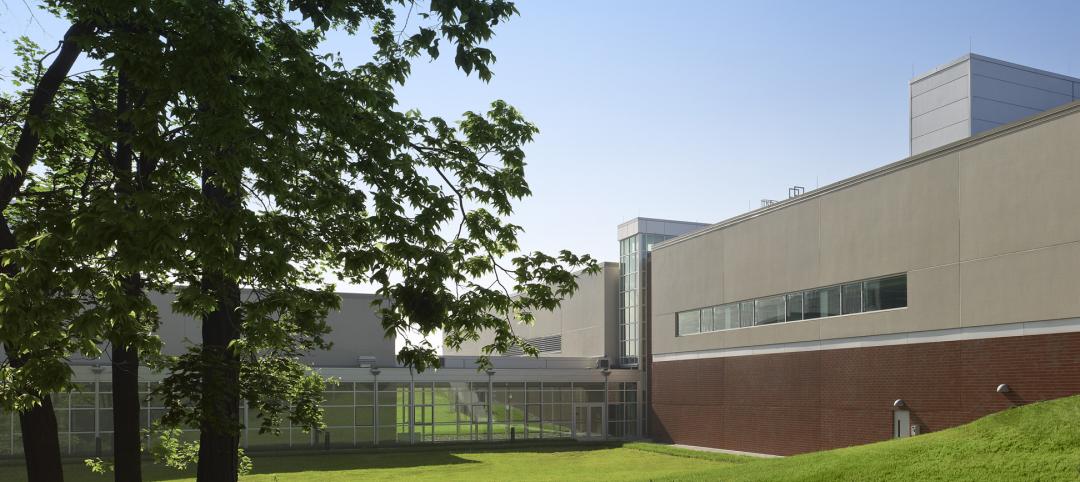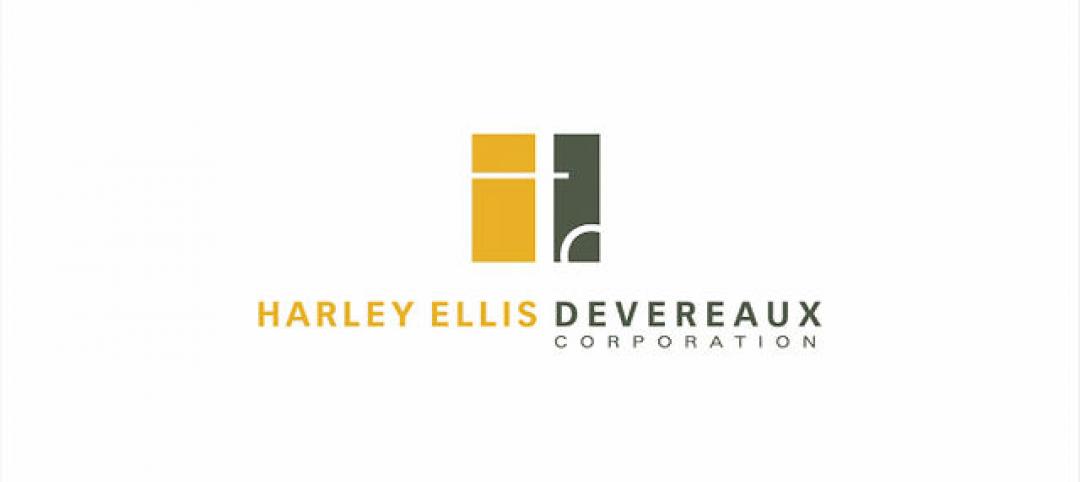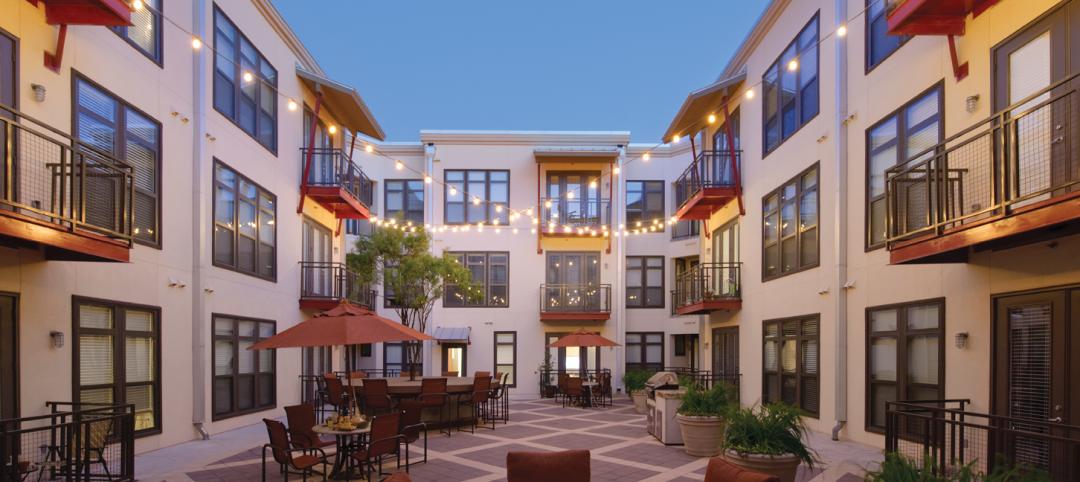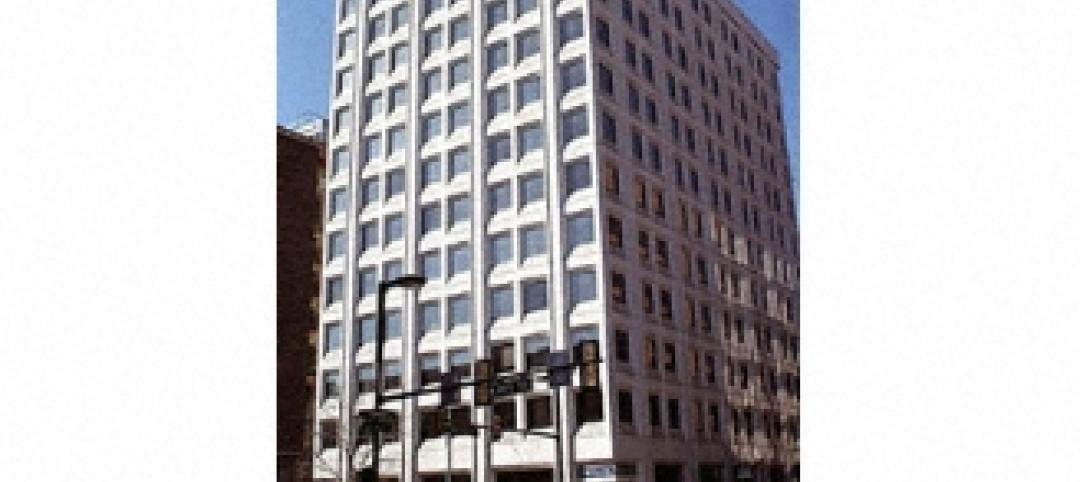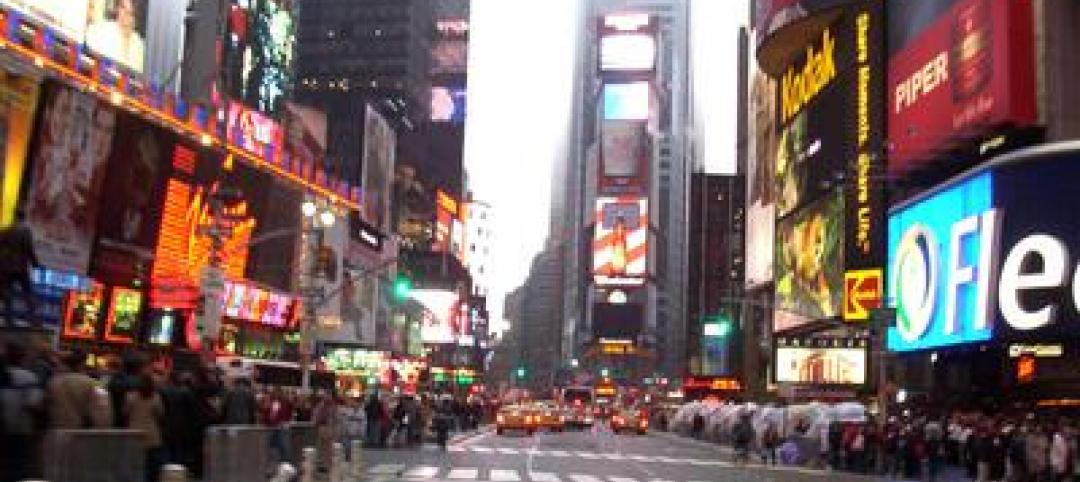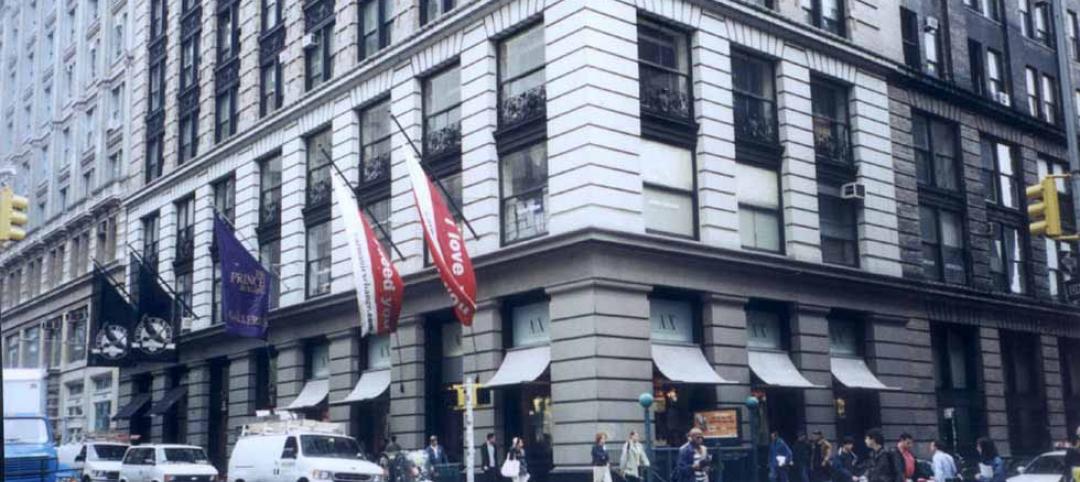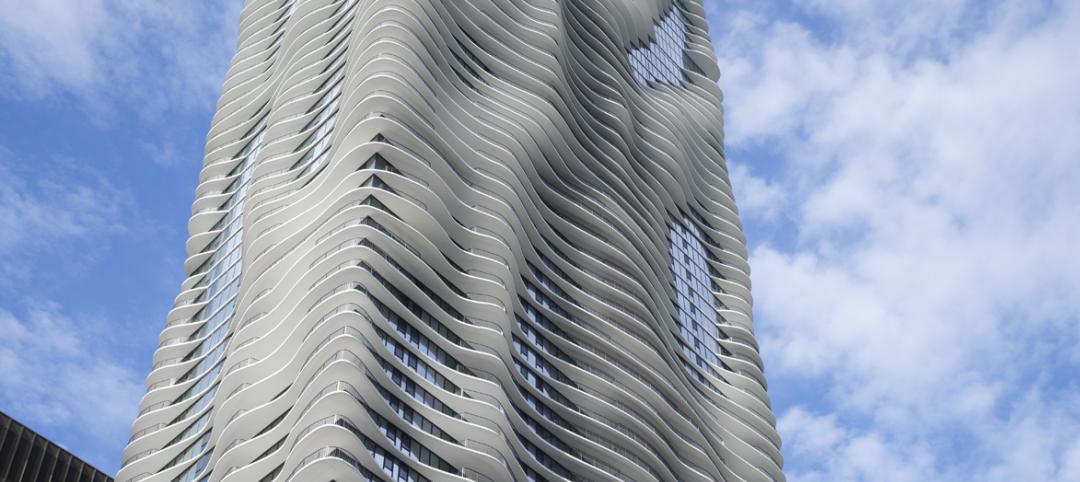Over two-thirds of office workers in the United States are disengaged from their work. Eight of 10 of those workers are stressed out. So it’s little wonder that U.S. companies struggle to find and retain talent at a time when emerging technologies and co-working trends empower more workers to step off the corporate treadmill and become freelance consultants, a trend that could result in 40% of the U.S. workforce being independently employed by 2020.
These are some of the key findings in Gensler’s “U.S. Workplace Survey 2016,” for which the industry’s largest architectural firm polled over 4,000 American workers in 11 industries using its newly redesigned Workplace Performance Index platform. That platform combines factors that impact user experience to calculate qualitative ratings for physical environments.
This is the 10th year that Gensler has conducted a poll of office workers.
The respondents to the latest survey represented all generations and roles in the workplace, companies of various sizes, and were geographically spread across the country.
Gensler paints a cramped portrait of the American workplace, where smaller desks and less privacy “are the norms” for many workers. From 2013 to 2016, choice of workspace fell at every level of the organization, even as senior leadership continues to report greater choice than professional or administrative staff.
C-Suite and managerial staff are more likely to see their organizations as innovative, with admin and professional staff expressing the opposite viewpoint. Perhaps not surprisingly, Gensler’s data uncovers a link between the quality and function of a workplace and the level of innovation that employees ascribe to their companies.
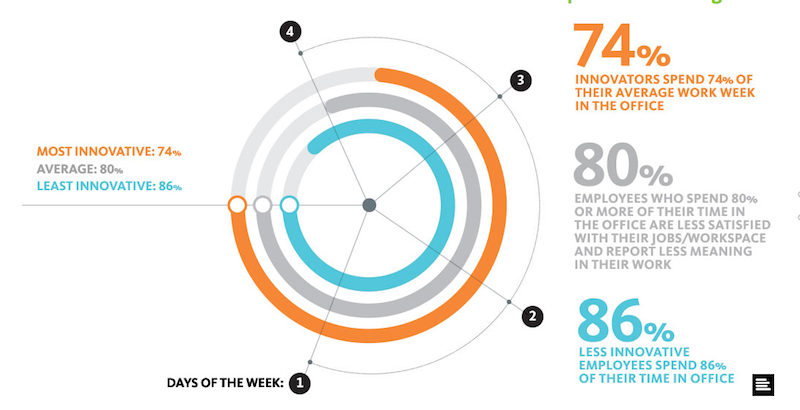 The most innovative office environments are those where innovators are spending less time at their desks, according to a new survey conducted by Gensler. Image: “U.S. Workplace Survey 2016.”
The most innovative office environments are those where innovators are spending less time at their desks, according to a new survey conducted by Gensler. Image: “U.S. Workplace Survey 2016.”
For example, it finds that innovators are five times more likely to have workplaces that prioritize both individual and group work.
Innovators have better designed workspaces of all types. They spend less time at their desks, instead collaborating and socializing from conference rooms, open meeting areas, and café spaces. They also spend more time working away from the office entirely, averaging 74% of an average week in the office compared to 86% for respondents with the lowest innovation scores.
Gensler sees better office design as a cure. “Workplace design prioritizes collaboration,” and reinforces purpose, choice, and equity, the report concludes from its polling data. Gensler observes that innovative companies are also more likely to accept that, thanks to Wi-Fi, “workspace” can extend beyond the office to other meeting places and the outdoors.
Innovative companies, says Gensler, are letting their employees have access to a wider variety of workspaces, and allowing them to work “wherever is best for the task at hand.” This tends to reflect how much companies care about their employees’ career satisfaction and development. “Improve the workplace, and expand choice and autonomy, across the organization to drive innovation,” Gensler advises.
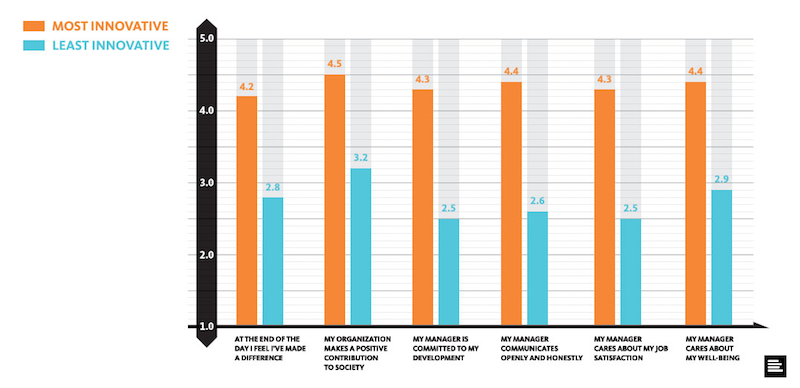 Innovative workplaces give their employees a positive feeling of accomplishment and purpose. Image: “U.S. Workplace Survey 2016.”
Innovative workplaces give their employees a positive feeling of accomplishment and purpose. Image: “U.S. Workplace Survey 2016.”
The firm conducted a similar survey of 1,200 office workers in 11 industries in the United Kingdom. It found that the UK workplace “significantly favors those in management positions.” Poorly designed and open-plan environments are negatively affecting more than 8 million UK workers. And legacy workplace behavior and lack of choice are drags on performance.
Gensler recommends that UK companies take a more considered approach to the open plan office, where “the right—and separate—spaces for individual and collaborate work are key.” It also calls for UK companies to expand workplace variety and choice, and match space to role, not status.
And in Asia, Gensler surveyed more than 2,000 office workers in six major metros. It found that Asian workplaces tend to adopt a common, western narrative, resulting in mostly open-plan workspaces combining workstations, offices, and conference rooms. “This hand-me-down model of workplace design … may now be holding Asian companies and employees back.”
Related Stories
| Jan 15, 2012
Smith Consulting Architects designs Flower Hill Promenade expansion in Del Mar, Calif.
The $22 million expansion includes a 75,000-square-foot, two-story retail/office building and a 397-car parking structure, along with parking and circulation improvements and new landscaping throughout.
| Jan 12, 2012
CSHQA receives AIA Northwest & Pacific Region Merit Award for Idaho State Capitol restoration
After a century of service, use, and countless modifications which eroded the historical character of the building and grounds, the restoration brought the 200,000-sf building back to its former grandeur by restoring historical elements, preserving existing materials, and rehabilitating spaces for contemporary uses.
| Jan 4, 2012
New LEED Silver complex provides space for education and research
The academic-style facility supports education/training and research functions, and contains classrooms, auditoriums, laboratories, administrative offices and library facilities, as well as spaces for operating highly sophisticated training equipment.
| Jan 3, 2012
VDK Architects merges with Harley Ellis Devereaux
Harley Ellis Devereaux will relocate the employees in its current Berkeley, Calif., office to the new Oakland office location effective January 3, 2012.
| Jan 3, 2012
Rental Renaissance, The Rebirth of the Apartment Market
Across much of the U.S., apartment rents are rising, vacancy rates are falling. In just about every major urban area, new multifamily rental projects and major renovations are coming online. It may be too soon to pronounce the rental market fully recovered, but the trend is promising.
| Dec 29, 2011
Seismic safety in question at thousands of California public schools
California regulators responsible for enforcing earthquake safety laws have failed to certify more than 16,000 construction projects in California public schools, increasing the risk that some projects may be unsafe, according to a state audit report.
| Dec 21, 2011
BBI key to Philly high-rise renovation
The 200,000 sf building was recently outfitted with a new HVAC system and a state-of-the-art window retrofitting system.
| Dec 20, 2011
Research identifies most expensive U.S. commercial real estate markets
New York City, Washington, D.C. and San Mateo, Calif., rank highest in rents.
| Dec 20, 2011
Aragon Construction leading build-out of foursquare office
The modern, minimalist build-out will have elements of the foursquare “badges” in different aspects of the space, using glass, steel, and vibrantly painted gypsum board.
| Dec 19, 2011
Chicago’s Aqua Tower wins international design award
Aqua was named both regional and international winner of the International Property Award as Best Residential High-Rise Development.


